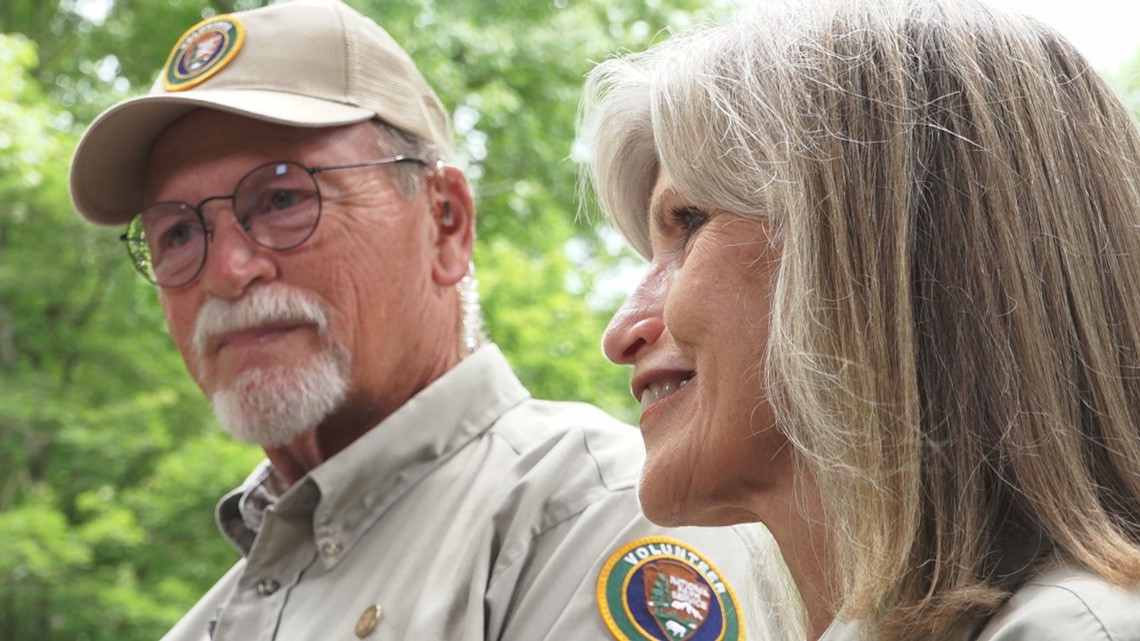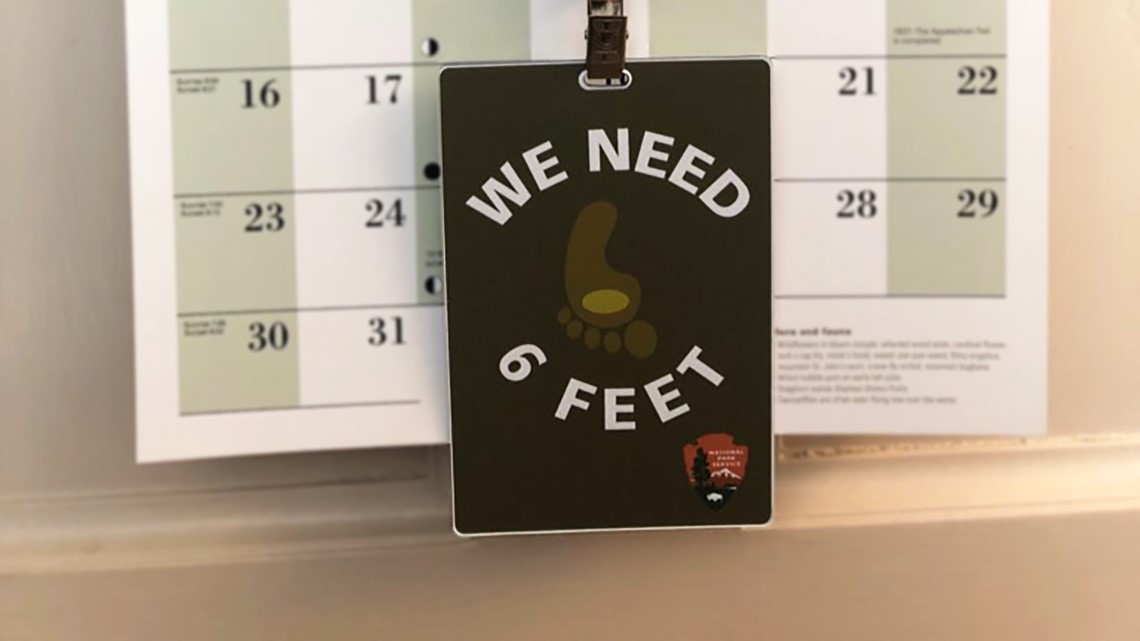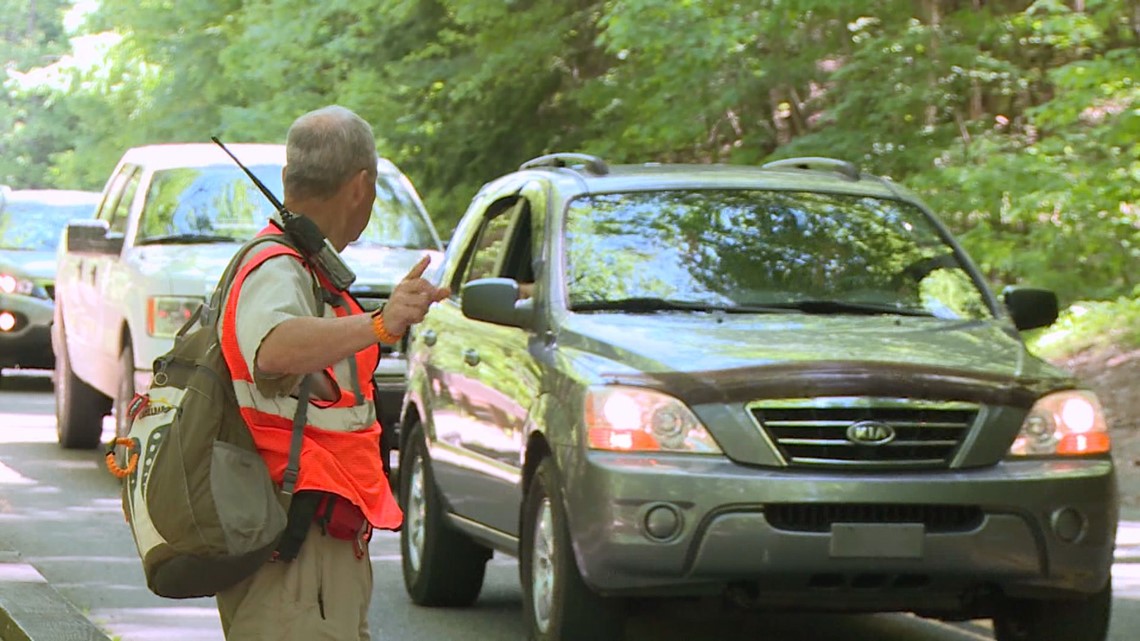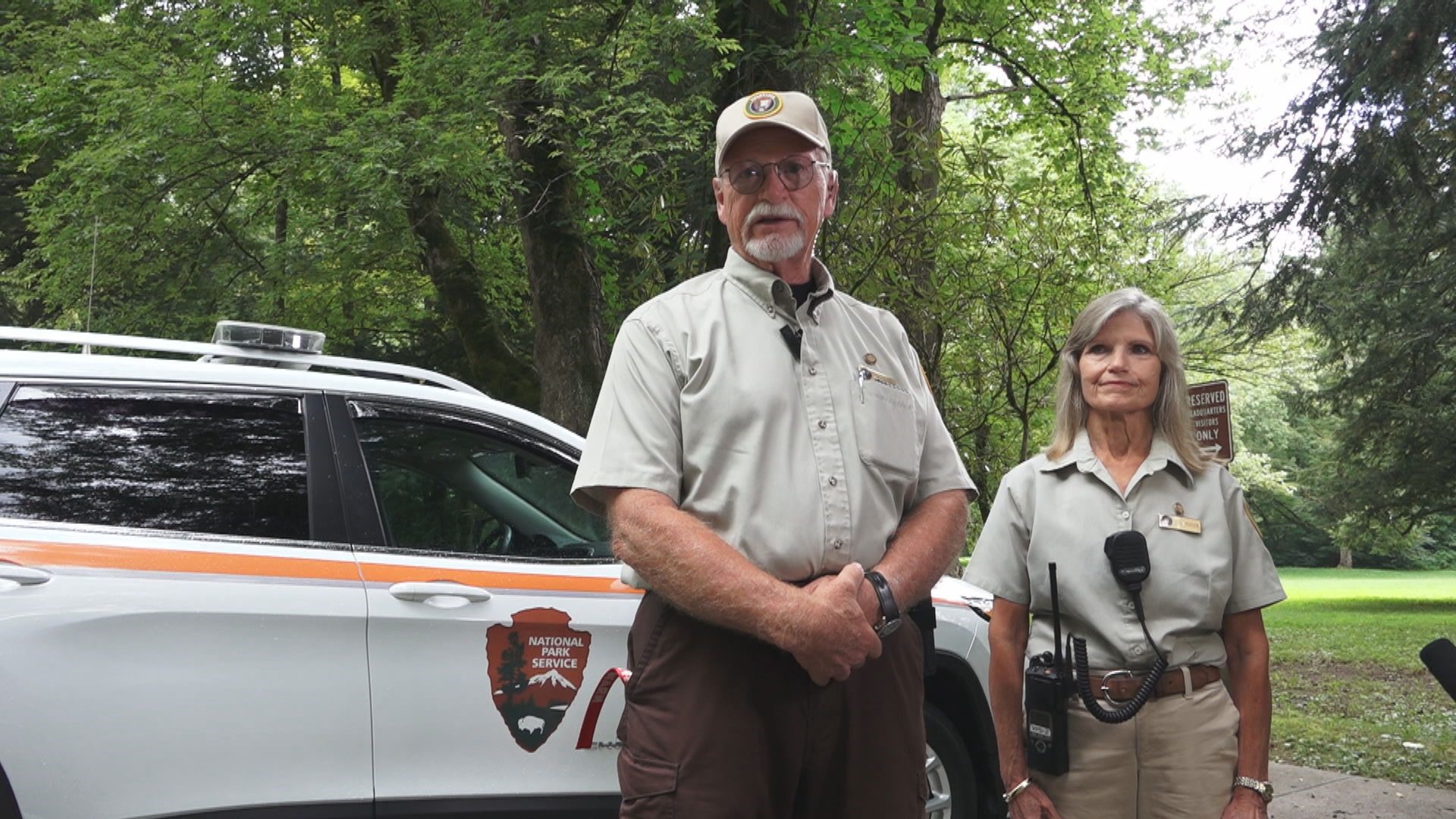GATLINBURG, Tenn — The Great Smoky Mountains National Park (GSMNP) continues to draw massive crowds as people seek open spaces to enjoy the outdoors during the COVID-19 pandemic.
But the virus is keeping away members of an important group in the Smokies. Many trained National Park Service volunteers have not returned to their roles due to safety concerns.
Volunteers are often older-aged retirees considered especially high-risk if they contract the coronavirus.
For those who are still able to safely volunteer, the virus is changing how they do their jobs.
"This year, because of the virus, we don't transport anyone in our vehicle. When we find a vehicle that's broken down, we still maintain our distance from them," said volunteer Jim Madden.


Madden is a retired police officer from Memphis. He and his wife, Regina, now spend their summers in the Smokies with a few days of the week devoted to patrolling for roadside assistance.
"We look for vehicles that are broken down. We help people when they lock their keys in the car. We can jump-start a battery. We also are trained in first aid and direct traffic when rangers respond to an accident," said Madden.
Volunteers in the Great Smoky Mountains are given lanyards with the words "We Need 6 Feet" surrounding a large Sasquatch footprint design.


Madden said there is a visible difference in the Smokies due to the shortage of volunteers.
"There is a bad litter problem. You can see trash up and down these roads. Volunteers do a lot of the dirty work to keep the park clean," said Madden.
Volunteers also help usher traffic along when a bear causes a traffic jam. Trash and traffic have a direct impact on the animals.
Biologists with the park said this has been a summer full of people behaving badly with bears.
"Volunteers watch the animals and keep bears pushed back away from the roads. They pick up trash. They are a mainstay for us. They really are boots on the ground," said biologist Ryan Williamson. "Without that resource, it stresses us out, it stresses the wildlife out, and we see those interactions. We've had a lot more reports of people feeding bears because we don't have volunteers out there patrolling areas."


While there's never a good time to injure yourself on the trails, this is an especially bad time compared to normal circumstances. Volunteers often play key roles in search and rescue efforts that help pull injured hikers from the wilderness.
"They had two rescues going on at the same time last week and they were having a tough time getting enough volunteers to do a carry-out," said Madden.
The bottom line is fewer volunteers means more problems for visitors and wildlife in the Smokies.
Although they're shorthanded, the Maddens say they're happy to help in a place as beautiful as the Great Smoky Mountains National Park.
"We love the mountains. We love it out here with the cool air. In Memphis, the heat index is over 100 degrees. And we get to live inside the park because we volunteer," said Madden.

